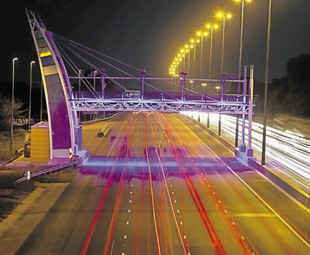You have been duped!

Are you a road user in Gauteng? Then you have been duped! That’s according to the Opposition to Urban Tolling Alliance (Outa), which maintains that finer details of the e-tolling system have been hidden from the public.
Outa is refusing to let this slide and went to court at the end of last week to expose the “lack of consultation” and disclosure from the South African National Roads Agency Limited (Sanral).
“The centre of the argument was placed on the illegal nature of Sanral’s poor public engagement process,” says Wayne Duvenage, chairperson for Outa.
He reveals that Outa’s case exposed Sanral for largely ignoring its legal duties to conduct full and proper public consultations in its plan to toll the Gauteng Freeway Improvement Project (GFIP).
“We have deemed Sanral’s conduct as sufficiently unlawful and as such, its e-toll plans need to be set aside and the process to be properly and legally re-engaged,” says Duvenage.
He tells FOCUS that, after an in-depth study of e-toll project successes and failures around the world, a high correlation of society’s acceptance of these schemes is based on confidence and trust obtained through excellent public engagement.
“Without these elements of communication in place to bring society on board, tolling has and will continue to fail,” he explains.
Various other aspects of the e-toll matter were also included in Outa’s legal confrontation and issues such as high costs, inefficiency, lack of alternative transport routes, enforcement, compliance, environmental matters and un-workability were all part of the case.
Although it has and may continue be a tough battle for Outa, Duvenage feels confident about the outcome: “We have put up an excellent challenge in court against Sanral, Treasury and the Department of Transport’s respective legal teams.”
He points out that it has been some 19 months after the first planned launch date in April 2011 and Sanral is still unable to implement e-tolls. “The growing voice of opposition to e-tolling now extends well beyond Outa, the Congress of South African Trade Unions and other bodies who have been outspoken on the matter.”
The public have also communicated their distaste for the system during the recent information sessions held by government. “Sanral simply cannot ignore this when reporting back to the Minister of Transport on these engagements,” says Duvenage.
He remains perplexed as to why both Sanral and government choose to continually ignore the clear message of rejection. “There have been overwhelming arguments highlighting the inefficiency and high costs of the current e-toll proposal and this may run the risk of creating further uncertainties and affecting credit ratings.”
Duvenage hopes that the legal case will mark the end of a long and tough challenge. “Win or lose in court, I’d like to acknowledge the dedication and tireless work from all our supporters, partners and members for getting us to where we are today.”
We will report on the court’s findings as soon as they are announced: look out for your FOCUS newsletter.
Published by
Focus on Transport
focusmagsa




